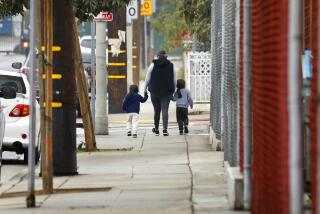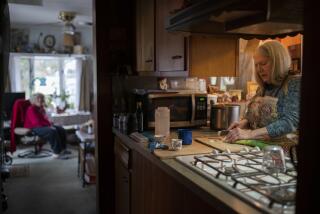Fear of childbirth linked to postpartum depression, study finds
Although a history of depression among expectant mothers remains the greatest single risk factor for postpartum depression, a new study finds that fear of childbirth may also predispose some women to the condition.
In a paper published Friday in the journal BMJ Open, researchers concluded that fear of childbirth increases the risk of postpartum depression about threefold in women without a history of depression, and fivefold in women with known depressive disease.
Their conclusion was based on a review of birth and health registers in Finland. Of 511,422 “singleton,” or single-child, births that occurred between 2002 and 2010, 1,438, or 0.3% involved postpartum depression -- a percentage similar to those found in U.S. studies.
“As expected ... two-thirds of all cases occurred in women with a history of depressive symptoms before or during pregnancy,” wrote lead study author Sari Raisanen, an epidemiologist and visiting scholar at Emory University in Atlanta, and her colleagues.
In fact, a history of depression was associated with a 140-fold increase in risk for postpartum depression.
What puzzled researchers was that a third of the cases involved women who were considered to be at low risk for the condition, having shown no prior signs of depression.
After examining the women’s medical histories, researches found a number of related factors, including Caesarean birth, preterm birth, stillbirth or a birth involving a congenital anomaly.
However, the single greatest predisposing factor -- after a history of depression -- was a doctor’s diagnosis that the expecting mother suffered from a fear of childbirth.
“The challenge is to recognize this low-risk group in a timely manner,” authors wrote.
Up to 80% of women who give birth will suffer from a short-lasting condition known as the baby blues. But some women will experience far more severe depression, which can impair their functioning or result in postpartum psychosis, authors wrote. Onset of episodes usually occurs four to six weeks after birth.
Researchers wrote that their study did not reveal whether giving birth itself was the ultimate trigger of depression and whether the women who had not been depressed before childbirth would have been free of depression if they had remained childless.
ALSO:
Do ‘jokesters’ distort research on gay youth?
Dogs align with magnetic fields while pooping, study says
Shingles can increase risk of heart attack, stroke, study says







